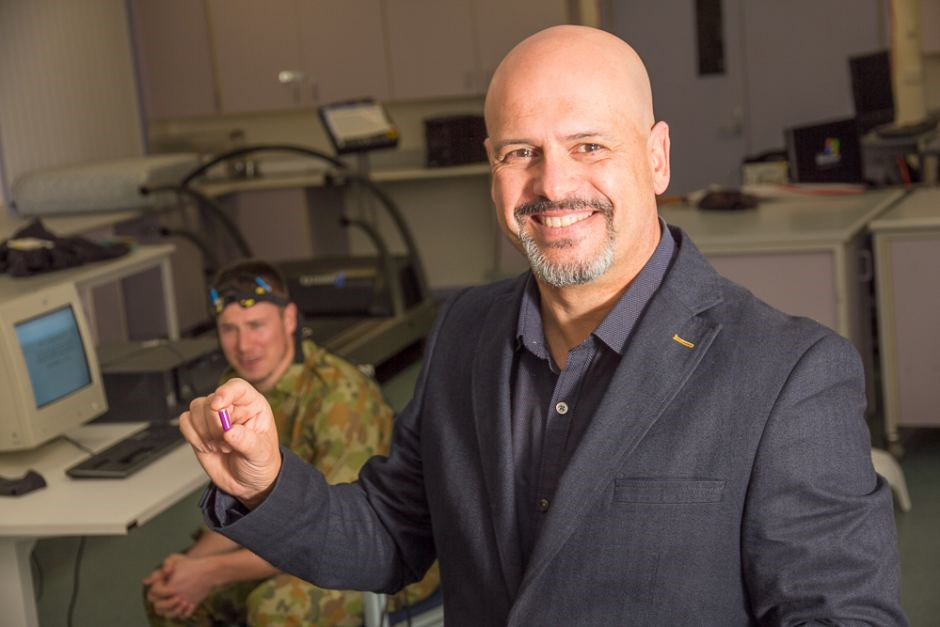Project Title: Simulated military dehydration and its relationship to contextual interference and cerebral oxygenation
Field: Physiology of Human Performance
It has long been believed that one of the major ingredients in the recipe for success in battle, particularly in hot climates, is the availability of water. If military personnel can avoid the mental and physical degradation brought on by dehydration, popular wisdom tells us, then they will have an advantage. The US military says an individual’s sense of thirst should not be the reason to hydrate - instead responsible commanders should ensure their personnel consume the recommended amount of fluids (up to 1.8 litres per hour) before becoming thirsty.
But what if heat related illness and other factors affecting physical and cognitive performance are not as related to dehydration as we think? What if the human body’s resilience in terms of reaction to environmental pressures is greater than we give it credit for? Research dealing with dehydration is unsettled, despite the popular consensus that a lack of hydration leads to performance decrement. An apparent paradox is that dehydration alone has not led to a fatality, but over-hydration has led to more deaths than you would think.
Professor Frank Marino, the Foundation Head, School of Exercise Science, Sport & Health and Chair of Physiology at Charles Sturt University investigates whether dehydration can have either physical or cognitive consequences to military personnel in the field. The results of the research could have a powerful impact on current policies around hydration for military personnel. Frank is well equipped for this research as an academic with a formidable track record. He has held the position of Visiting Professor at Harvard University and developed the novel physiological paradigm of ‘anticipatory regulation’, he has won two Vice Chancellor’s Awards for Research Excellence and is highly ranked in his institution for research output.
“If we’re wrong around military battlefield hydration policies and if thirst alone is an acceptable guide for an individual to know when they need to hydrate, then it is possible that entire military forces are suffering deleterious consequences of over-hydration”, says Professor Marino. His own studies, as well as several others, have so far revealed that dehydration to 4% of body mass has no effect on either physical or cognitive performance. Other research has shown the fastest runners in the field are those who were dehydrated by 8 to 10% of body mass. The outcomes of the studies supported by the Spitfire Fellowship have already been published in highly ranked journals and supported a PhD program.


